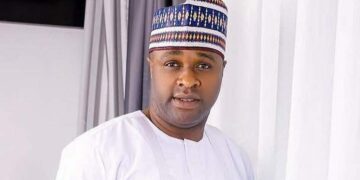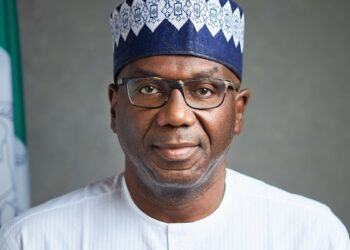
A new report shows that 68% of Nigerian women don’t own smartphones. This makes it harder for them to access the internet, learn new skills, or take part in the digital economy.
To fix this, the Federal Government says it plans to equip 70% of Nigerian women and girls with advanced digital skills by 2027.
Government Launches New Partnerships and Programs
The Minister of Communications, Innovation, and Digital Economy, Dr. Bosun Tijani, announced the plan during a press briefing ahead of World Telecommunication and Information Society Day (WTISD), held every year on May 17.
Tijani said that as Nigeria becomes more digital, no one should be left behind—especially women and girls. He believes digital progress should include everyone, and gender equality must become a reality, not just a goal.
To support this mission, the government is partnering with the African Development Bank, the World Bank, and private investors. Together, they will provide grants and low-interest loans to women-led tech startups.
It’s About People, Not Just Technology
Nigeria has now reached 46.2% broadband coverage. But according to Tijani, a digital economy isn’t just about internet access or new tech—it’s about people.
“When women face barriers to access, skills, or leadership in tech,” he said, “we don’t just fail them—we limit Nigeria’s future.”
Tijani was represented at the event by Engr. Adeyemo Adetunji Olugbenga from the National Frequency Management Council Secretariat. He called on private companies to:
-
Use gender-friendly hiring practices
-
Support women-led tech hubs
-
Create workplace policies that empower women
New Policies to Support Inclusion
Tijani also said the ministry has launched several programs to help women thrive in the digital world. These include:
-
The National Gender Digital Inclusion Strategy (NGDIS) (2004–2077)
-
The 3 Million Technical Talents (MTT) Program
-
The Nigeria Artificial Intelligence Research Scheme
-
Digital Nigeria and Local Content Capacity programs
The government is also improving cybersecurity and taking action to protect women from online harassment.
Breaking Stereotypes in Tech
To close the gender gap in tech, the government wants girls to study STEM (Science, Technology, Engineering, and Math) from an early age.
Tijani also asked the media and civil society to tell more stories of women succeeding in tech—and to hold leaders accountable for making real changes.
This Year’s Theme: Gender Equality in Digital Transformation
The theme for WTISD 2025 is “Gender Equality in Digital Transformation.” Tijani says it’s a reminder that if we don’t give women equal access to digital tools, we all miss out.
WTISD is a global event that highlights how digital tools—like the internet, AI, and mobile tech—can solve big problems, from climate change to poverty.



![Viral House Party Video Sparks Conversation on Changing Social Norms Among Nigerian Mothers [Watch Video]](https://kumornews.com/wp-content/uploads/2026/02/Viral-House-Party-Video-Sparks-Conversation-on-Changing-Social-Norms-Among-Nigerian-Mothers-Watch-Video-1-360x180.jpg)












